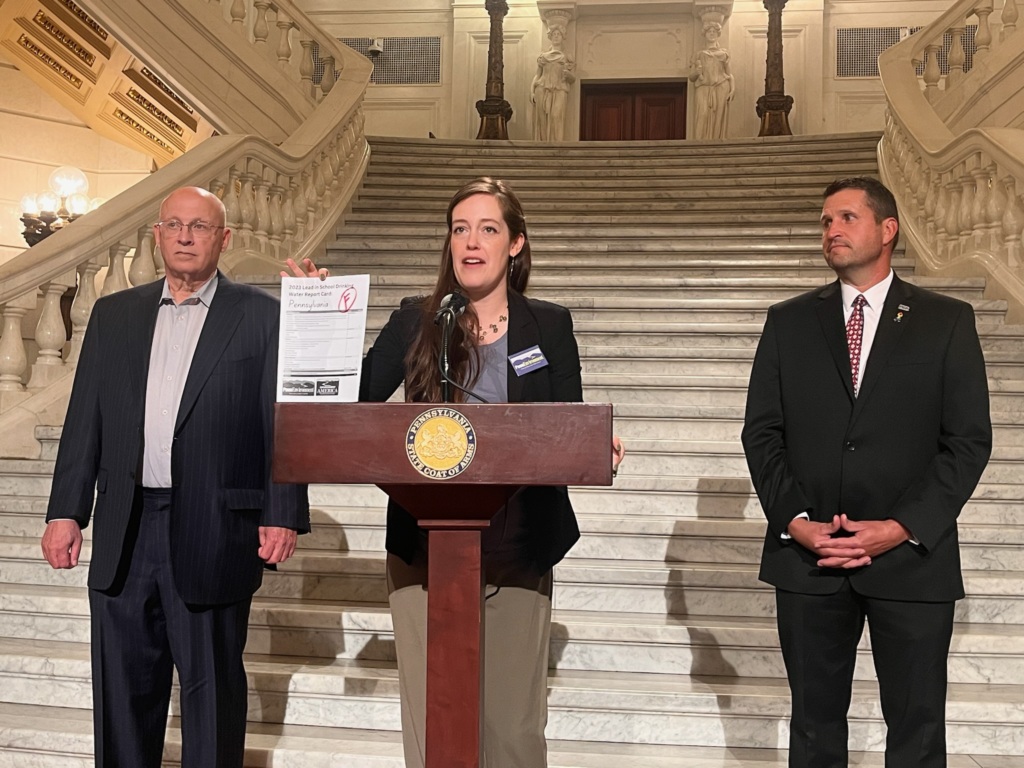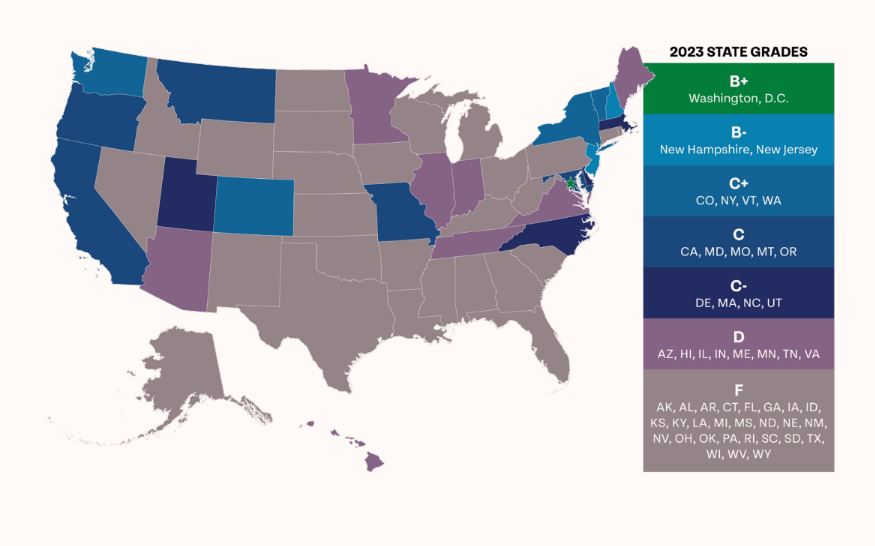Stephanie Wein
Water and Conservation Advocate, PennEnvironment Research & Policy Center
As the school year kicked off across Pennsylvania, the PennEnvironment Research & Policy Center sadly had to share some bad news for the commonwealth’s students, parents and school staff. September 6th we held a news conference in the state capital to release the third edition of our Get The Lead Out report, which compares policies to protect children from lead in school drinking water across all 50 states and Washington DC.
And for the third time, Pennsylvania was graded an “F” for the inadequacy of the state’s policies aimed at stopping pervasive lead contamination of schools’ drinking water.
The state’s two largest teachers unions, American Federation of Teachers Pennsylvania (AFT-PA) and the Pennsylvania State Education Association (PSEA), joined us at the event, calling on leaders in Harrisburg to implement a set of health-based best practices to ensure that we’re protecting Pennsylvania school children from the threat of lead contamination at school building drinking fountains and sinks.
The findings of our new report were eagerly covered by Pennsylvania’s largest media outlets, including coverage in PennLive; Pittsburgh Post-Gazette; WESA-FM; the Delaware County Times; NBC-10 Philly; Fox 43, WGAL Channel 8 and ABC 27 in Harrisburg; Erie News Now; WJAC Johnstown-Altoona and many more.

Photo by Erika Brunelle | Used by permission
PennEnvironment’s Clean Water Advocate Stephanie Wein (center) releases “Get the Lead Out”, flanked by AFT-PA President Arthur Steinberg (left) and PSEA Vice President Jeff Ney (right).
Widespread lead contamination has been found in Pennsylvania schools. In fact, a 2021 report by Women for a Healthy Environment, of 65 Pennsylvania school districts surveyed, 91% of tests done on water from those districts’ water fountains and sinks tested positive for lead.
Health experts agree: lead is unsafe at any level. The health risks from lead exposure are well known: lead is a highly potent neurotoxin, with long-term exposure – even at very low levels – causing permanent damage to the brain, kidneys, and other organs. Children are particularly vulnerable to the effects of lead – harming their learning, development, and behavior. And yet, everyday unknowing Pennsylvania parents send their kids to schools whose water is contaminated with lead – putting the most vulnerable among us at risk where they spend many of their waking hours.
Even with the extensive knowledge about the threat posed by lead and the pervasiveness of lead in school drinking water, there aren’t strong standards in place in Pennsylvania to protect kids from this potent neurotoxin. This includes no health-based standards in Pennsylvania for lead in school drinking water (which health experts call for 1 part per billion (ppb)), no requirements for school districts to replace old, antiquated drinking equipment that may be laced with lead with lead-filtering alternatives, and lagging requirements for even testing for lead in school drinking water. For all these reasons, Pennsylvania received the grade of an “F” in PennEnvironment’s scorecard.

How does Pennsylvania stack up?
The good news is that we can solve this problem, and there are clear steps we’re recommending that our state leaders in Harrisburg implement in order to keep Pennsylvania kids safe:
A bipartisan group of legislators in the state Senate have announced their intention to introduce new protections that would ensure Pennsylvania’s students are safe from lead in water at schools, led by State Senator Devlin Robinson (Allegheny County), Senator John Kane (Delaware and Chester counties), and Senator Art Haywood (Philadelphia and Montgomery counties).
Our children shouldn’t be exposed to potent neurotoxins in the very place they go to learn and grow. As our kids head back to school this fall, let’s take the steps we need to keep them safe from lead in drinking water!
